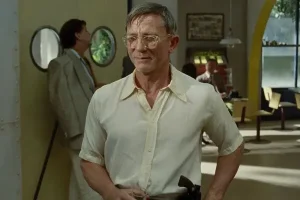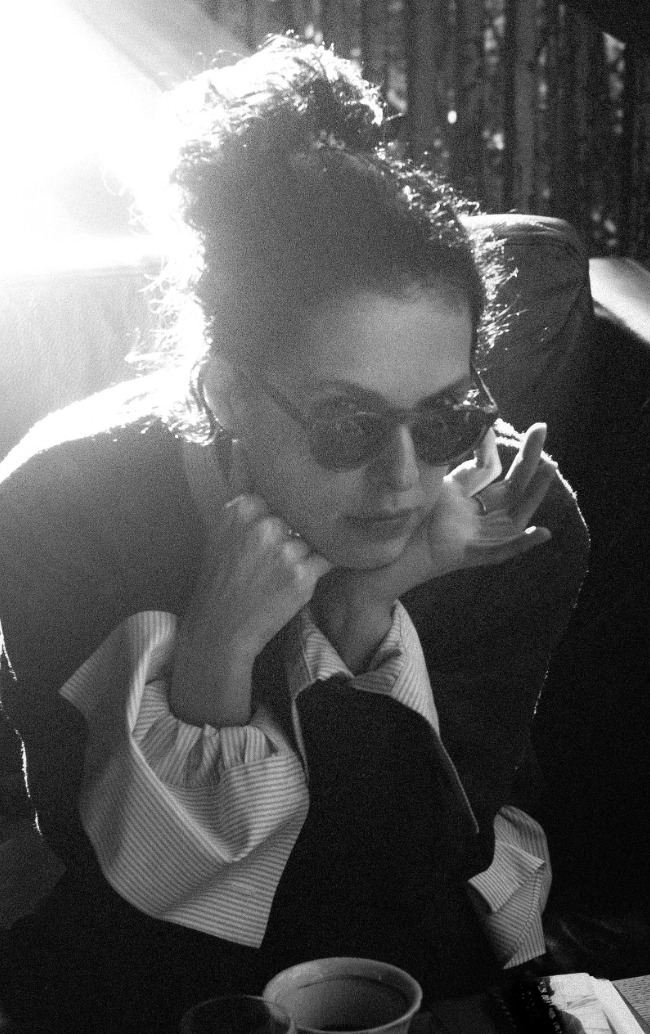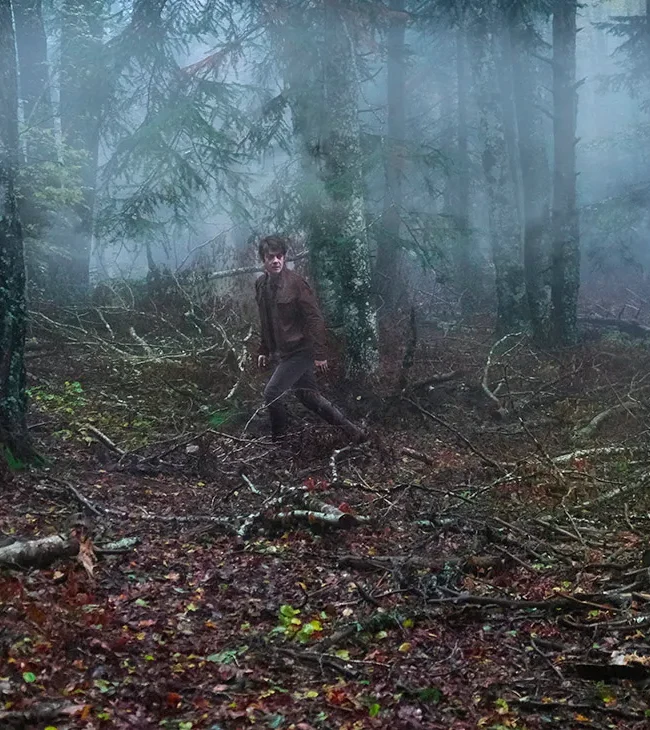A Conversation with Screenwriter Justin Kuritzkes (QUEER)

Screenwriter Justin Kuritzkes, whose plays The Sensuality Party and Growth made their mark in the theater world, has emerged as one of Hollywood’s most exciting new voices. After establishing himself as a playwright, Kuritzkes made a stunning entry into film with Challengers, the electrifying tennis drama starring Zendaya that marked his first collaboration with director Luca Guadagnino. The film, which deftly weaves complex relationships with the high-stakes world of professional tennis, announced Kuritzkes as a major talent capable of crafting narratively ambitious, character-driven stories for a mainstream audience.
Now, the screenwriter has reunited with Guadagnino for their second feature together: Queer, an adaptation of William S. Burroughs’ semi-autobiographical 1985 novel, which premiered at the Venice Film Festival. The film stars Daniel Craig and Drew Starkey, with Trent Reznor and Atticus Ross returning to score their second project with Guadagnino and Kuritzkes following Challengers. It was great to discuss the film in the following conversation edited for length and clarity.
Hammer To Nail: With Challengers you did an original screenplay, here you are adapting. Talk about the process of adapting this novel particularly, what was it about this piece that intrigued you and how did the history surrounding the novel affect your screenplay?
Justin Kuritzkes: Challengers was something I wrote on spec. That means you make it for yourself. You have no idea who is going to make it with you or if it will be made. You are just writing it because it’s a movie you want to see. Through doing that, I had the amazing fortune of making the movie with Zendaya, Josh, Mike and, Luca! We were in the middle of pre-production for Challengers when one day Luca gave me this book called Queer. He said, “read this tonight and tell me if you’ll adapt it for me.” I read it that night and immediately said, “yes.” I had no real idea how I was going to do it, however, I felt it was too exciting. This great book by a legendary author, adding to that, it was a movie Luca had wanted to make since he first read it when he was a teenager. I felt tremendous excitement and responsibility to write Luca the movie he had been dreaming about. I started to see my job writing this movie as a process of opening a channel between these two artists. Luca Guadanino on the one hand and William S. Burroughs on the other. I knew Luca very well as a collaborator and a friend. I had a very clear idea of how he works. Burroughs I was obviously never going to know. I felt like a medium between them. The short answer is that Luca directing this story is what was so exciting about this project to me. That was just something that I knew I needed to be apart of.
HTN: A lot of Daniel and Drew’s relationship plays out physically. How much of that do you put on the page and how much of that is you leaving space for Luca and the actors to discover? How did you write the sex and sensuality into the script?
JK: It’s a bit of a mixture. People asked me similar things about Challengers because a lot of the drama is communicated wordlessly. A lot of it came through gestures, the way people look at each other, and who is looking at who when. A lot of that you have to put on the page, because my job as a screenwriter is to make people feel like they watched the movie. That is the only way they will get the sense of how they are going to make it. With Queer there was a similar challenge of knowing that so much of the psychology between the two of them was happening wordlessly. It was going to happen through gestures, the way that they looked at and touched each other. There’s a balance that needs to be struck in giving people as much as they need to have a clear sense of what is going on dramatically but also, withholding so that your collaborators can bring all of their perspective and all of their art to it. That’s what makes movie making exciting.
HTN: What movies were you watching or thinking about when you started to approach the adaptation?
JK: I was thinking about a lot of movies. You sometimes get inspiration from unexpected places. I obviously thought a lot about Luca’s filmography to figure out where this movie would sit in that. I was rewatching those films. I thought a lot about westerns. Movies about gunslingers. I had the good fortune of being in Boston for the shooting of Challengers, and Jonathan Anderson the costume designer was with us for a lot of that process. He recommended that I watch this amazing French film called Stranger By The Lake. It is an erotic thriller. The way that intimacy is treated in the film was very striking to me. At times terrifying at times breathtaking. I found a lot of inspiration from that. Fassbinder’s films like Querelle came into play a lot, especially when I realized how Luca wanted to build the world of this movie. This movie especially, I really thought about where it sat in the world of cinema more than I had with other movies.
HTN: How do you think Queer’s themes of identity, addiction, and unrequited desire resonate differently with audiences today versus when the book was written/published? Was that something you considered?

Daniel Craig in QUEER
JK: Yes and no. I think it was really important to me to not bring today’s judgements or today’s sensibility onto this world. The truth is, the characters in this book exist in such a specific time and place and milieu. I really wanted to meet them where they were. There’s a lot of things that make them unsavory. There are parts of both of them that are less accepted generally now and parts of them that are more accepted. I wanted to not fall into the trap of either. I needed to meet them right where they were in 1950s Mexico City as these American expats. That was a world I had not seen before. I did not transplant my 2024 onto it.
HTN: Queer is considered part of Burroughs’ semi-autobiographical trilogy with Junky and Naked Lunch. How much did you engage with these other works while adapting Queer?
JK: A lot. They are all on a continuum. They are all very different too. I was familiar with Naked Lunch, and a lot of Burroughs’ other writing, but I had never read Queer. I was really shocked when I read it to find out, for Burroughs at least, it was a very straightforward love story. It operated on the psychology of these two very different men trying to get on the same page. They are trying to understand each other and communicate on this level of intuition. They are trying to traverse the barrier between themselves. That felt like a really unique thing within Burroughs canon. I really followed the impulse of that and tried to make that the drumbeat that would make the movie work. In order to understand the context of it you have to read, Junky and Naked Lunch. I don’t think you need that much context to watch the movie, but to write the movie you do (laughs).
HTN: Burroughs wrote this during a pivotal time in his life, right after the death of his wife Joan. How much did you feel it was important to acknowledge that context in the adaptation?
JK: It was a balance. One of the things that is particular about the book is that it is in some ways unfinished. It’s very hard to say where the main text of Queer starts and where Burroughs life begins. It’s a kind of open text in that way. In every edition of the book you get there are essays on both sides of the main novella. A lot of that scholarship and a lot of that work is about the context in which Burroughs’ wrote Queer. He had just had this horrible event happen where he shot his wife and she died. He says in some of his writing that the event haunted the writing of Queer. He would not have been able to make it if this horrible thing had not happened. Because I was aware of that context as I read the book, it felt really natural to bring that into the movie. It did not feel like something that was existing outside of the world of this story. It was fundamental to it. It was a question of how to bring that in and not turn the movie into the Willam Burroughs story. It needed to maintain that it was a fictional story about a fictional character even if he was an alter ego in some respect for the author, I had to be faithful to the character William Lee and not to the man William Burroughs.
– Jack Schenker (@YUNGOCUPOTIS)











